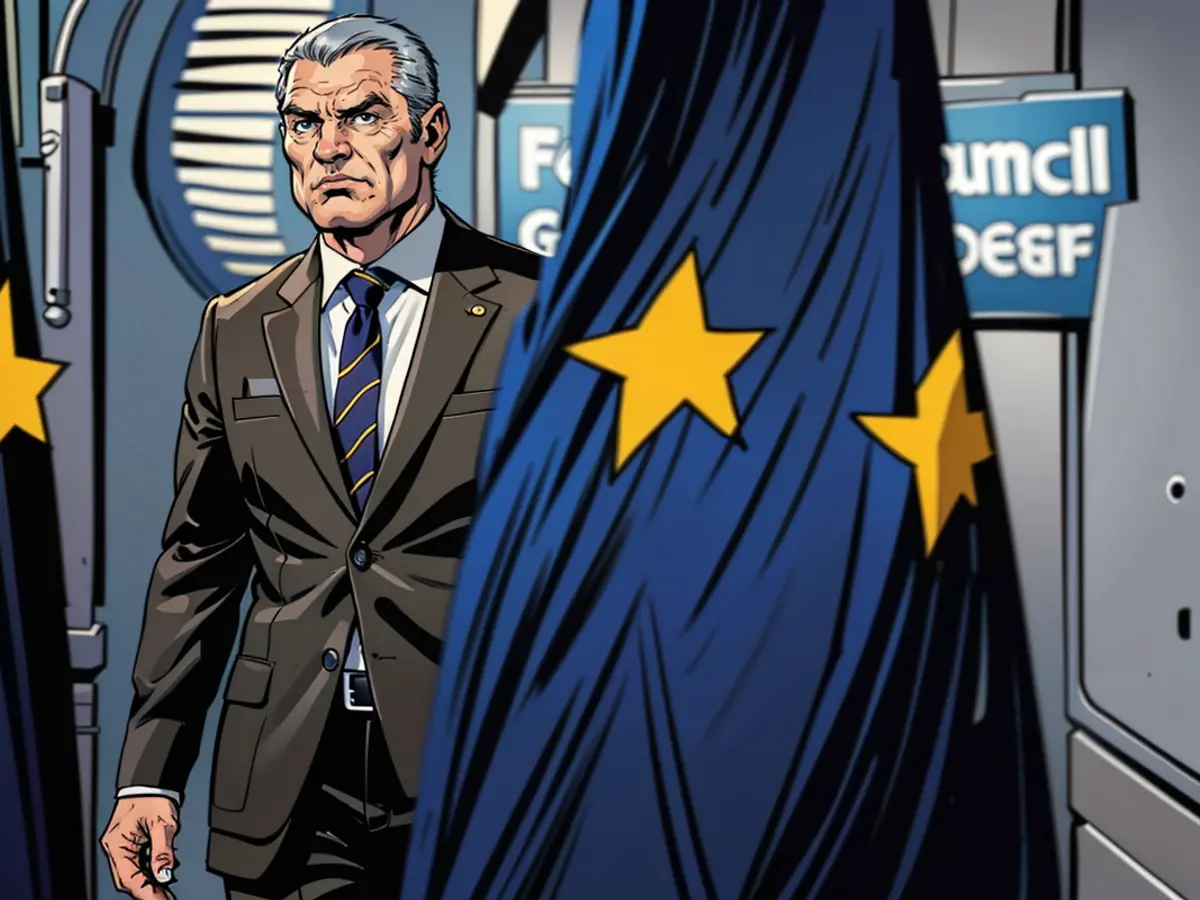EU summit - Top jobs and a guest of honor: Scholz & Co consult in Brussels
EU Commission President, EU High Representative, and EU Council President: A formal decision on the new appointment of EU top posts following the European election is expected at an EU summit in Brussels on this Thursday and Friday. It is nearly certain that German CDU politician Ursula von der Leyen will be nominated for a second term as President of the EU Commission.
Federal Chancellor Olaf Scholz has promised a fair debate on the filling of the top posts. While there is a political understanding among Conservatives, Social Democrats, and Liberals, Scholz stated before the meeting of the 27 Heads of State and Government in Brussels, "This is just a position." The SPD politician emphasized, "We will discuss this carefully, fairly with each other. All 27 are equally important to me." Previously, he had been asked if he understood why Italian Minister President Giorgia Meloni felt overlooked.
The three major European party families have agreed that von der Leyen will remain as Commission President, and the liberal Estonian Prime Minister Kaja Kallas will become the EU's Foreign Policy Chief. The former Portuguese Prime Minister António Costa is expected to become EU Council President. Meloni criticized this agreement, stating that it ignored the successes of right-wing parties in the European election.
The Austrian Chancellor Karl Nehammer emphasized the importance of bringing Meloni into the negotiation process. "What's important is that we significantly improve the discussion culture," he said. Constructive forces within the European Parliament must be taken into account, even if they belong to other factions.
Selenskyj is expected for the summit
At the core of the leaders' meeting, an agreement on Ukraine's security cooperation with the EU is planned to be signed. Ukrainian President Volodymyr Zelenskyy is also expected in Brussels for this purpose. In addition to the personnel package, a so-called strategic agenda for the years up to 2029 is to be adopted at the summit. With it, the alignment and goals of the EU for the next five years will be determined. Furthermore, discussions on the situation in the Middle East, as well as on competition policy and the defense industry of the EU, are on the agenda.
The Parliament can still veto the leaders
The EU Parliament can theoretically still reject the decision of the Heads of State and Government. A majority of the Parliament must confirm the Commission's composition. The informal alliance of EVP, Social Democrats, and Liberals theoretically has a comfortable majority of approximately 400 of the 720 votes. However, it is calculated that a certain number of MPs will deviate from their faction's line and not give their vote to von der Leyen. Therefore, it is assumed that she will still seek votes from MPs of other parties, particularly from the Greens. Representatives of the Greens have recently signaled openness for talks.
The Security Agreement that the EU intends to sign with Ukraine originated from an initiative of the G7 group of western economic powers. At the margins of the NATO summit in Vilnius, Lithuania last year, they agreed that certain countries should conclude bilateral agreements with Ukraine to ensure its long-term security. Countries such as the United Kingdom, Germany, and France started this in January and February. The US followed suit more recently.
With these agreements, Ukraine will be guaranteed weapons deliveries, financial aid, and political cooperation. They are intended to help Ukraine bridge the time until it is hoped that the country will join NATO. For example, Germany has pledged to continue and expand its military support to Ukraine - among other things, through additional weapons deliveries and the training of Ukrainian soldiers and soldiers.
Recently, Zelenskyy signed a Security Agreement between his country and Belgium in Brussels at the end of May. With this, Belgium has agreed to provide Ukraine with the delivery of 30 F-16 fighter jets.
- At the EU summit in Brussels, a decision on the EU top posts is expected, with Ursula von der Leyen likely to be nominated for another term as EU Commission President.
- Olaf Scholz, the German Federal Chancellor, stressed the importance of fair debate on the top post appointments, emphasizing that all 27 EU member states are equal in his eyes.
- Despite this, Giorgia Meloni, the Italian Minister President, criticized the agreement to keep von der Leyen as Commission President and appoint Kaja Kallas as EU's Foreign Policy Chief, arguing that right-wing parties' successes in the European elections were ignored.
- Volodymyr Selenskyj, the Ukrainian President, is expected to attend the EU summit in Brussels to discuss Ukraine's security cooperation with the EU and sign a potential agreement.
- António Costa, the former Portuguese Prime Minister, is expected to become EU Council President, while the three major European party families have agreed on these appointments.
- The EU Parliament has the power to veto the leaders' decision on the Commission's composition; however, it is assumed that von der Leyen will seek votes from MPs of other parties, particularly from the Greens who have recently signaled openness for talks.
- The EU intends to sign a Security Agreement with Ukraine, which originated from an initiative of the G7 group of western economic powers, and several countries, including Germany, have already started providing Ukraine with weapons deliveries, financial aid, and political cooperation.
- Zelenskyj recently signed a Security Agreement between Ukraine and Belgium in Brussels, with Belgium committing to provide Ukraine with 30 F-16 fighter jets.








